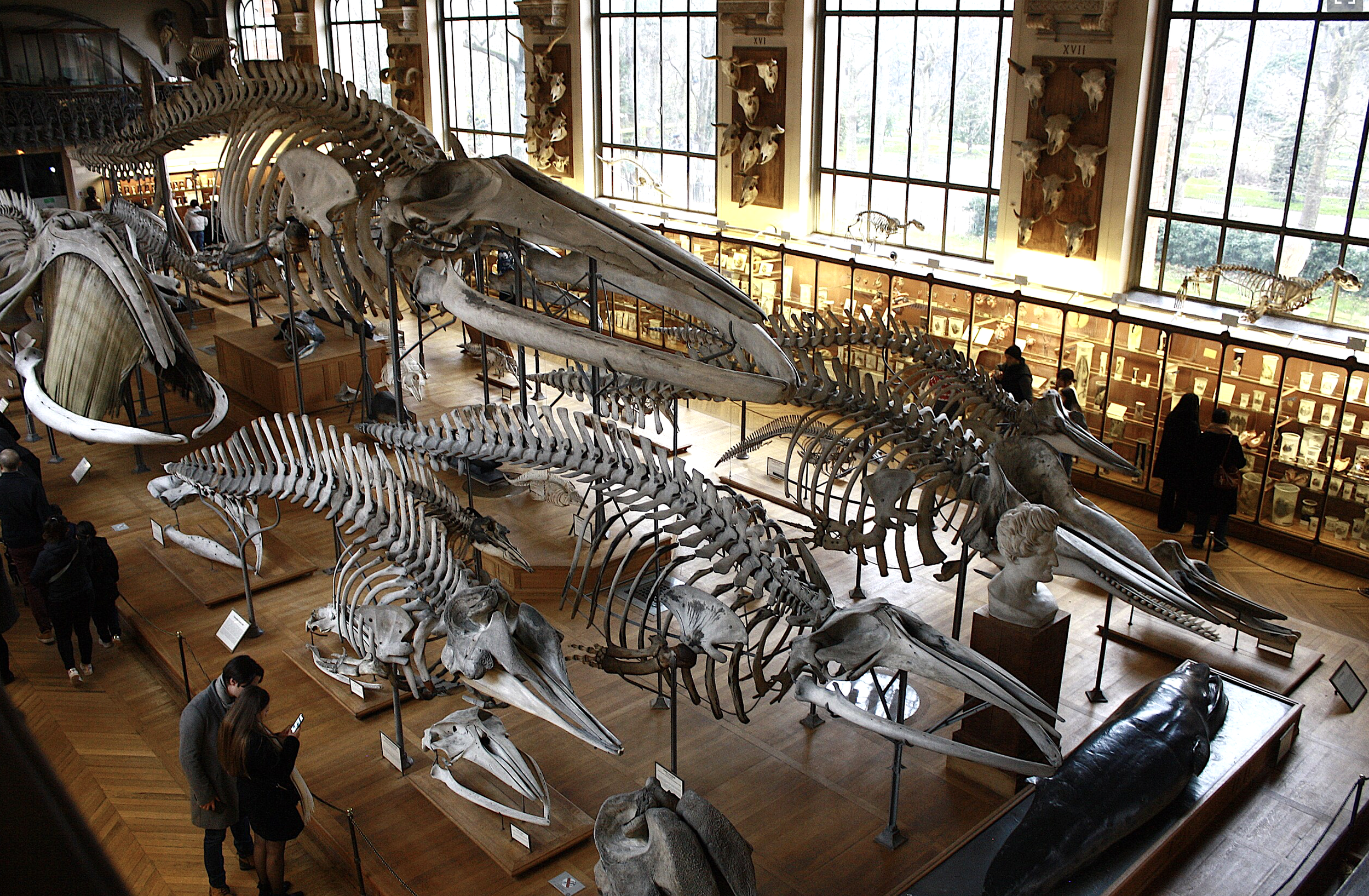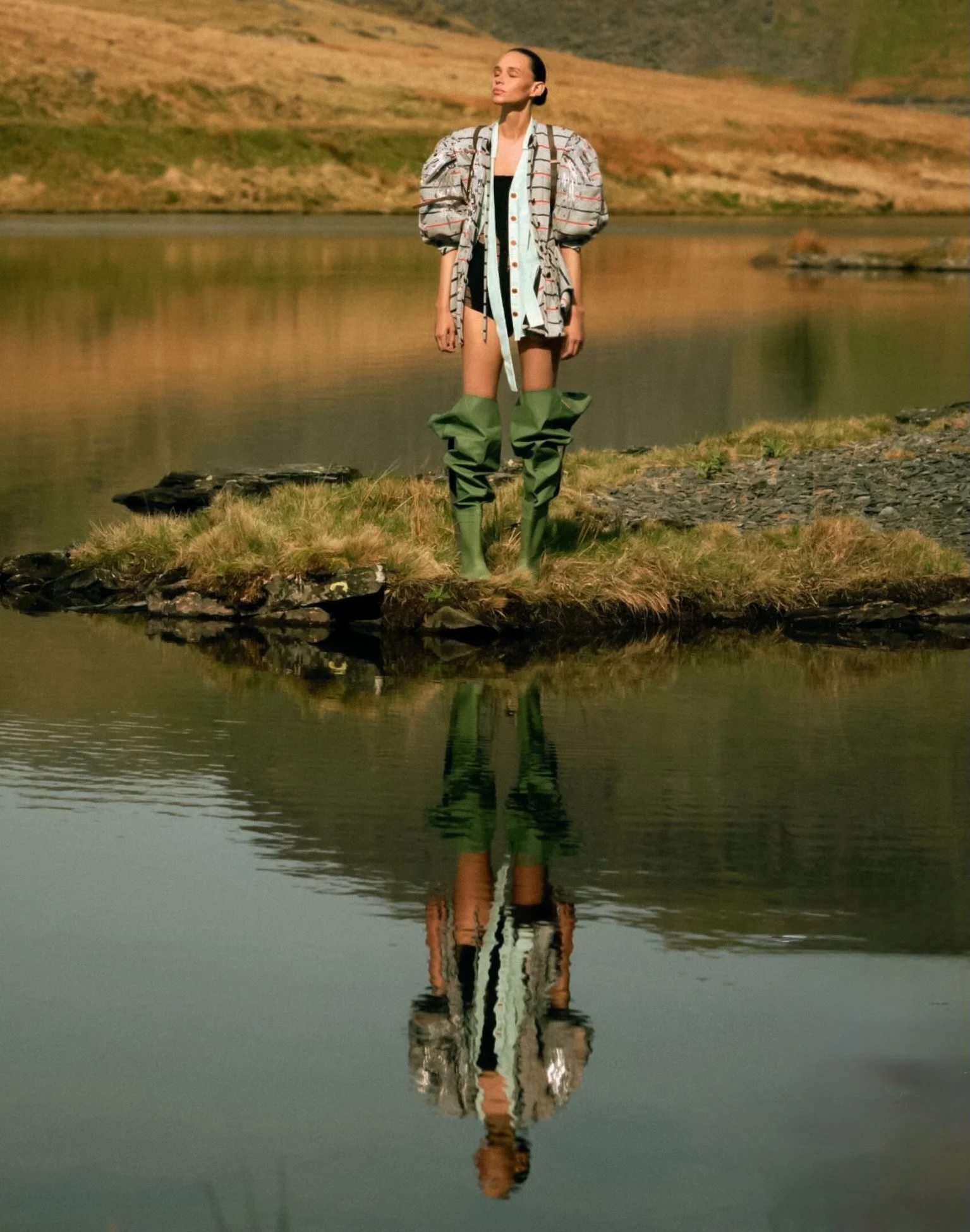Revered in Ancient Cultures, Whales Were Hunted Worldwide by Man’s Desire for Dominion Over Nature
/Whaling off the Goto Islands Japan, Canvas Print by Katsushika Hokusai Fine Art America
Whales: Revered in Ancient Cultures but Hunted Worldwide by Christians Armed with Dominion Over All Art of Living
In global history, whales held a significant place in ancient cultures and mythologies across the globe, symbolizing power, mystery, and the unknowable depths of the oceans. In many coastal societies, whales were considered sacred creatures, deeply interwoven with spiritual beliefs and understanding of the natural world.
AOC continues to learn more about the history and evolution of whales, inspired by supermodel Vittoria Ceretti’s revelation in the April 2025 issue of Vogue France, that she was a whale in another life.
In this article, Anne studies the early transition and evolution of an ancestral group called the cetaceans dating back 50 million years ago into modern mammals. We explore the relationship that indigenous peoples had with whales worldwide, arriving at the story of whaling in America.
Killing Whales and Ladies Corsetry
Over time, the human relationship with whales became one of hunting them for food and sustenance, but without any sacred reverance. This American relationship is different from Japan’s, which honored a whale before and after the kill as early as the 12th century. In the minds of the Japanese, humans and whales were kinfolk.
Via Getty Images
The American whaling industry dominated whales psychologically in a form of exploitation that reduced them to providing the boning for women’s corsets in early America.
Yes, they also provided clean-burning oil for lamps which was a much greater service to human communities. But the symbolism of their use in women’s corsetry is impossible to ignore. The corsetry fact flooded me with an expression of astonishment when I read it.
Finally, we learn about the hunting of whales in America as mere utility kills with no sacred relationship between the whalers and their prey.
The post ends as we prepare to tackle the contradictions of American whaling through the book ‘Moby Dick’ and the rise of of a more nuanced understanding of the contradictions of whaling in both the American and British Quaker communities.
Given the state of America’s political landscape, I will also explore the similarities of Captain Ahab’s pursuit of his enemy — the great whale Moby Dick — and US president Donald J. Trump’s ardent crusade against his own perceived enemies. ~ Anne
Skeletons of different types of whales exhibited in the Gallery of Paleontology and Comparative Anatomy of the National Museum of Natural History in Paris [France]. Contributer Titlutin; shared under the Creative Commons Attribution-Share Alike 4.0 International license.
Read AOC’s earlier report from The Conversation: New England's Whaling Industry Was a Meritocracy for Black Enterprise, Including As Ship Owners.
Anne was equally astonished to learn about the significant involvement of both American slaves seeking to buy their freedom with whaling wages and Free Blacks in the whaling industry.
Many American whaling expeditions travelled with 30% Black men onboard, and a lesser percentage of indigenous men.
More than a few Black men not only captained those crews, but owned the ship and its business interests.
More Reading: ‘Industry’s’ Place in U.S. History: The Maritime Legacy of African-American and Indigenous Peoples
For Whaling Captains, Diversity Flourished Atlantic Black Box

































